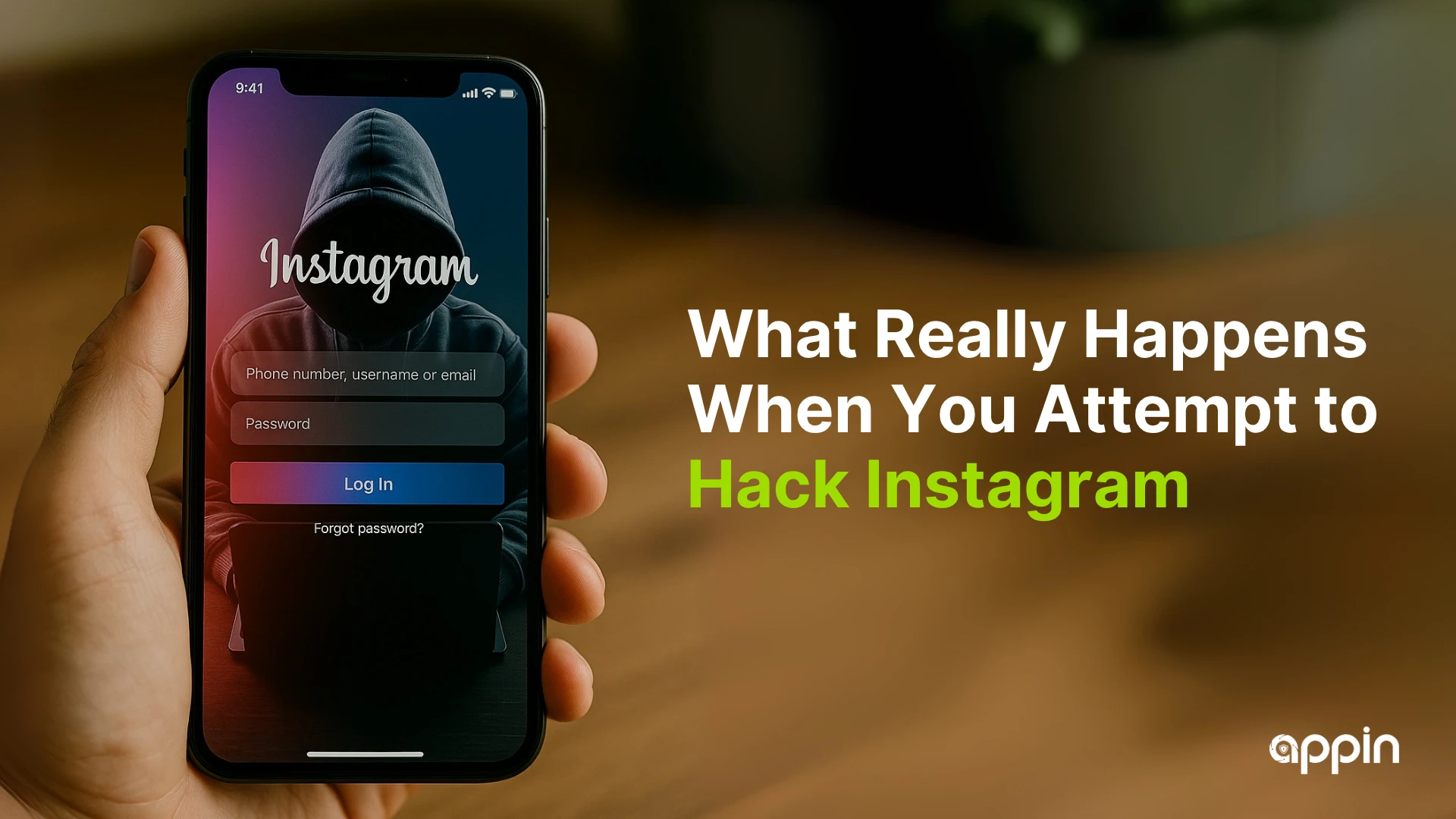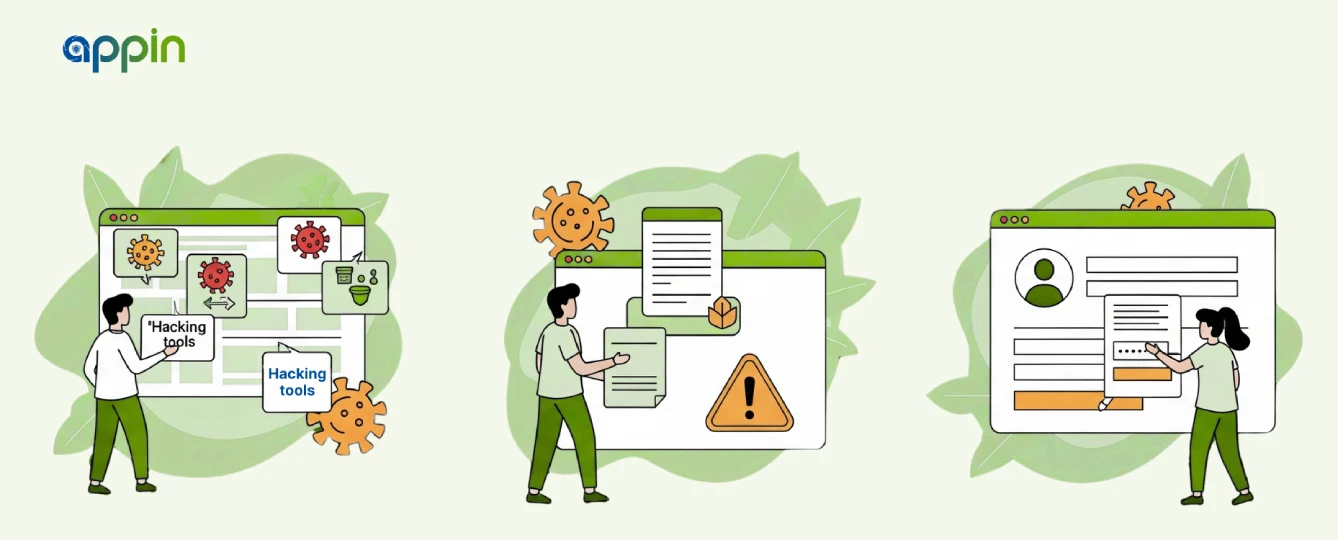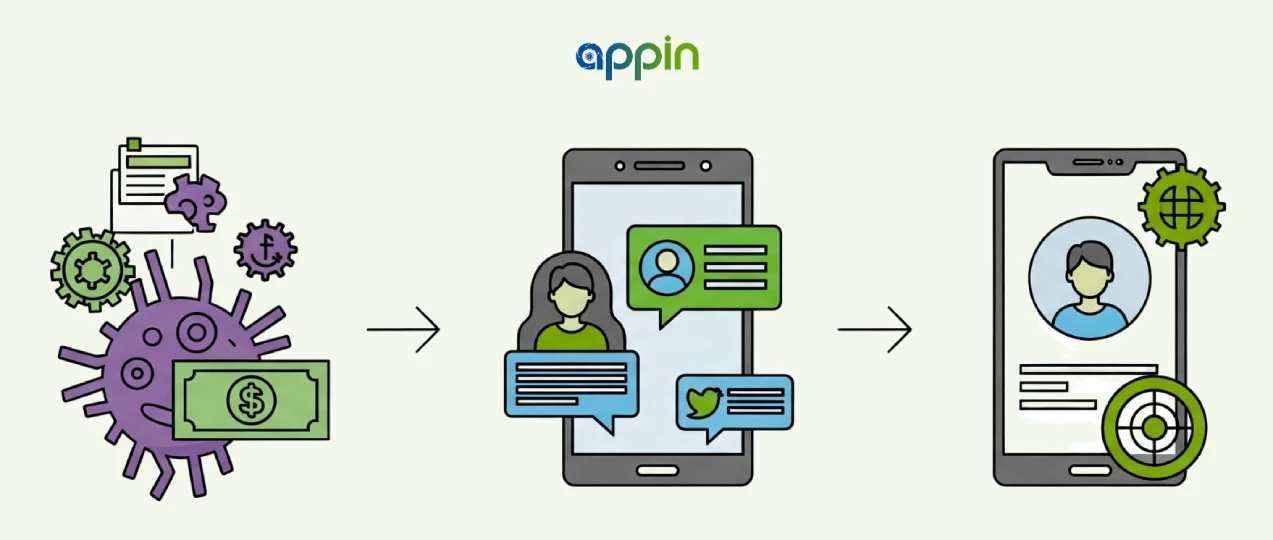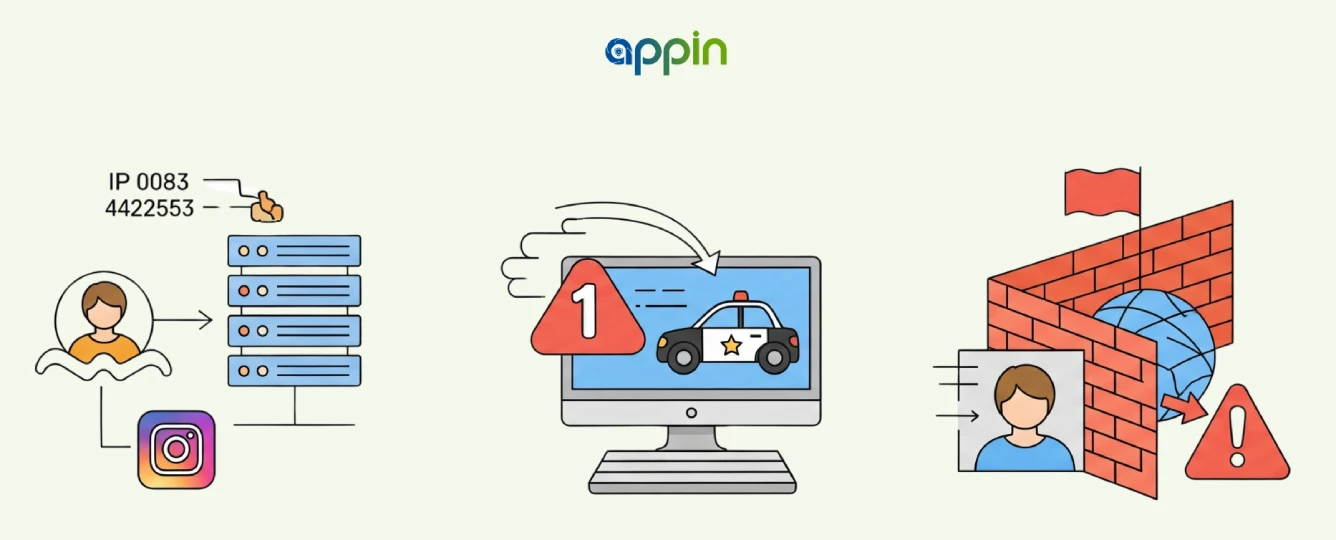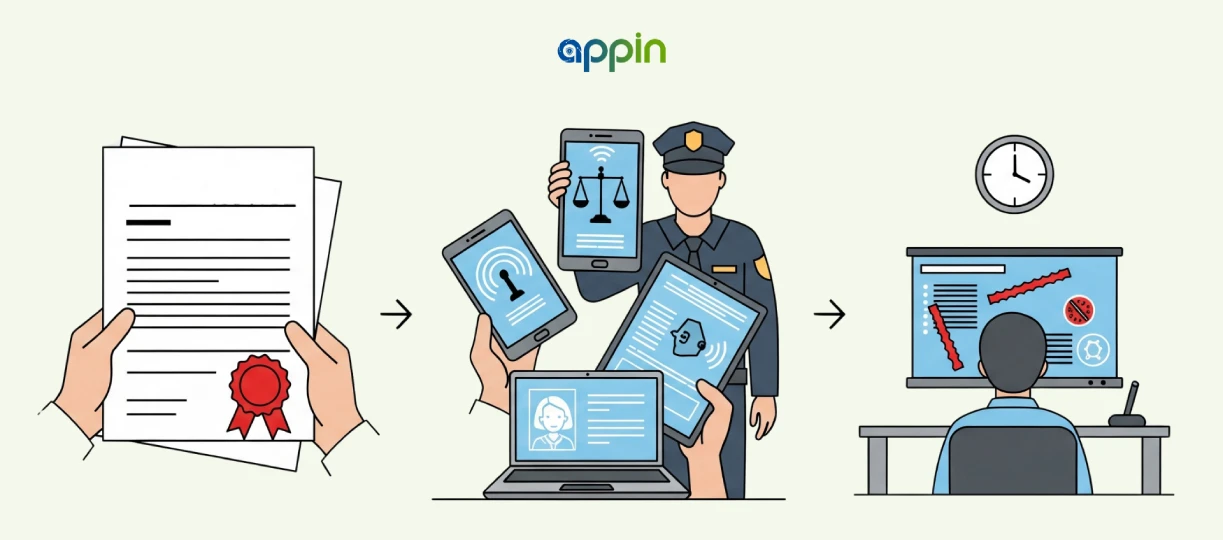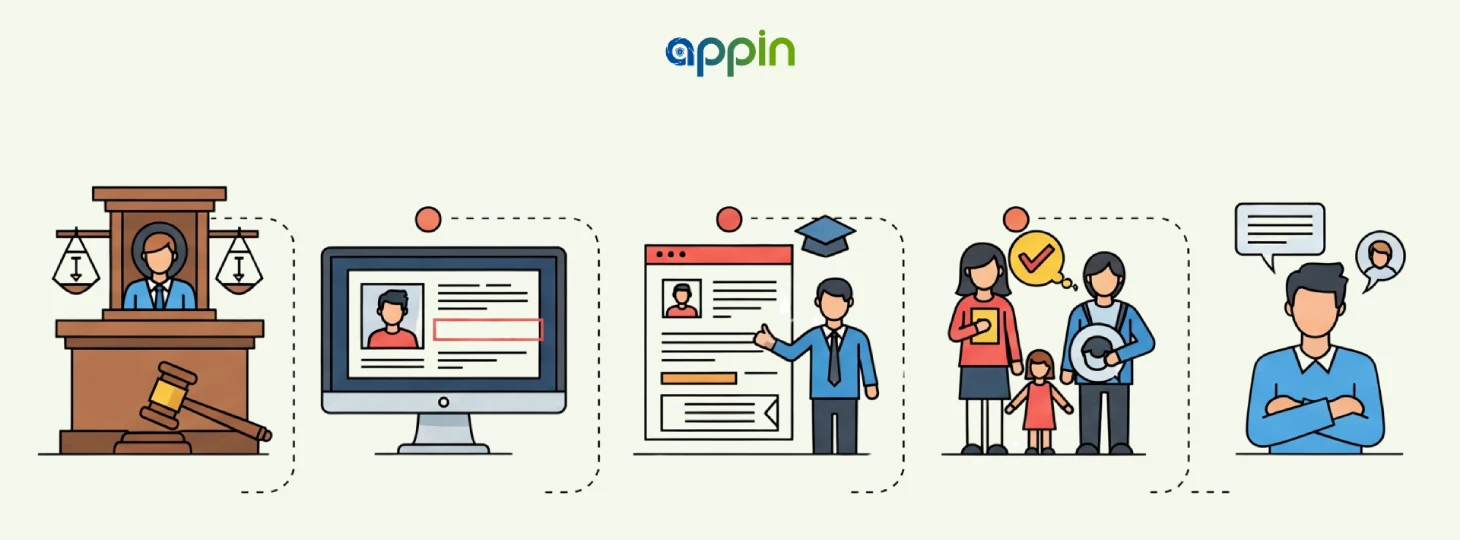Many beginners search online for ways to hack Instagram, thinking it might be a quick way to impress friends or test their skills. What they often overlook is that even the very first step toward this can put them in serious trouble. It is not a harmless challenge. It is illegal in every country and comes with risks that can affect your freedom, finances, and future.
Hacking an account is not only against the law, it also exposes you to scams, malware, and cybercriminals who can turn the tables on you. Instead of gaining control of someone else’s profile, you could end up losing your own accounts or even facing legal action.
In this blog, we will walk you through 17 real situations that can happen from the moment you attempt Instagram hacking until the long-term consequences. You will also see why ethical hacking is the only safe and smart alternative.
Stage 1: The Temptation (First steps that lead to trouble)
The journey toward trying to hack Instagram often begins with a simple Google search. Many beginners look for quick tutorials or free tools, not realizing these are the first missteps toward bigger problems. If you want to test your skills, it is far safer to learn ethical hacking through structured training rather than experimenting with illegal methods.
1. Finding “Hacking Tools” Online
- Search results are filled with scam tools, shady websites, and fake tutorials. Most promise instant results but are designed to steal data from anyone who downloads them. This is where choosing the right path with ethical hacking and cyber security training makes all the difference.
2. Downloading from Unknown Sources
- Cracked programs, modified APKs, or suspicious ZIP files often hide spyware, ransomware, or other malicious payloads. These not only fail to hack accounts but also compromise your device.
3. Entering Your Own Credentials on Fake Portals
- Many so-called hacking tools require you to log in first. The moment you enter your details, you hand over your own account to a real hacker. Rather than falling into these traps, work toward a recognized Cyber Security Certification where you can practice safely in secure labs.
Stage 2: The First Signs of Trouble (Technical and personal danger starts)
Once you download and run these suspicious tools, the real danger begins. Instead of gaining access to someone else’s profile, you unknowingly put your own digital life in jeopardy. A safer option would be to take an ethical hacking full course where you can learn professional penetration testing methods without breaking the law.
4. Malware Starts Collecting Data
- Spyware silently harvests your files, saved passwords, and even sensitive banking details. You will have no idea until the damage is done.
5. Your Social Media Gets Compromised
- The attackers who tricked you may take over your accounts, using them for phishing campaigns or sending spam to your contacts. This creates further risk to your reputation.
6. The “Target” Account Doesn’t Get Hacked
- Most illegal tools are scams. You end up wasting time, losing data, and realizing you have been the victim all along. In cyber security ethical hacking programs, you learn exactly why such tools fail and how to ethically test systems instead.
Stage 3: You’re Now on the Radar (How platforms and authorities detect you)
At this stage, your actions are no longer hidden. Every click, login attempt, and failed password guess leaves a trail. This is where many get caught. Learning through a Certified Ethical hacking course ensures that your skills are developed legally and without fear of tracking.
7. Your IP Address Gets Logged
- Instagram’s security system monitors suspicious login attempts and records the IP address behind them.
8. Automated Alerts Sent to Law Enforcement
- Platforms have agreements with cybercrime units. Repeated suspicious activity often triggers automated reports to the authorities.
9. Your Internet Service Provider Flags You
- Your ISP can detect patterns in your network activity and may send warnings or restrict access if you engage in illegal hacking attempts.
Stage 4: The Legal Knock (When it turns into a criminal case)
Once you cross into illegal activity, the shift from curiosity to criminal investigation can happen fast. This is the stage where hacking attempts stop being an online “experiment” and turn into a legal battle. At this point, the only safe way to build skills would have been through a structured ethical hacking course that lets you test your abilities without breaking laws.
10. Receiving a Legal Notice or Summons
- The first formal sign of trouble often comes as a letter or official summons from a cybercrime unit. This document makes it clear you are under investigation.
11. Devices Seized for Forensic Analysis
- Laptops, phones, storage drives, and even cloud accounts may be confiscated to look for hacking tools, chat logs, and browsing history.
12. Facing Interrogation
- Investigators review digital evidence and question you about your intent. Even if you claim it was just for curiosity, the law treats any unauthorized hacking attempt as a serious offense.
Stage 5: Long-Term Fallout (Permanent effects on your life)
For many, the legal case is just the beginning. The effects can stay with you for years, impacting your education, career, and relationships. This is where the regret sets in—realizing you could have learned the same skills through legal courses, explored advanced training, or even specialized through programs like the Bug Bounty Diploma.
13. Court Proceedings and Penalties
- Even a first-time offense can bring heavy fines or jail time. Sentences vary by country, but courts take cybercrime seriously.
14. Permanent Digital Footprint
- Once your name appears in public cybercrime records, it can be indexed by search engines and remain visible for years.
15. Losing Job or Academic Opportunities
- Employers and universities perform background checks. A cybercrime record often means instant rejection.
16. Damage to Personal Relationships
- Trust from family, friends, and colleagues is hard to rebuild once your actions become public knowledge.
17. Realizing Ethical Hacking Was Always an Option
- Many wish they had invested in legal training from the start. With affordable ethical hacking course fees and options to specialize in high-demand skills, it is possible to learn and earn without risking your future.
Why Ethical Hacking Is the Smarter Path
The curiosity to test hacking skills is not wrong, but the method matters. The same techniques used in illegal hacking can be learned and practiced legally through ethical hacking. This approach allows you to understand system vulnerabilities, penetration testing, and security measures without breaking the law.
With the right training, you can:
- Work on simulated hacking labs that mimic real-world systems.
- Earn industry-recognized certifications such as the Certified Ethical Hacking credential.
- Gain hands-on skills that companies actively look for in cybersecurity professionals.
Enrolling in a structured course or specialized programs like the Bug Bounty Diploma also opens the door to legitimate income opportunities. Many organizations pay ethical hackers to find and report vulnerabilities in their systems, making it a respected and financially rewarding career path.
Choosing this route not only keeps you safe from legal trouble but also helps you build a strong, future-ready career in cybersecurity.
Conclusion
The journey from a simple search to attempting to hack Instagram can spiral into a chain of consequences that affect your freedom, finances, career, and relationships. What begins as curiosity often ends in regret when legal trouble, damaged reputation, and lost opportunities take over.
Instead of risking everything, channel that curiosity into a legal and respected path. Learn the skills that interest you in a safe environment, earn certifications that employers value, and work on real security challenges without fear.
Here’s your safer alternative:
- Explore ethical hacking as a career option.
- Join structured training programs to build your skills.
- Earn credentials that open doors to high-demand cybersecurity roles.
If you are serious about learning the right way, Inquire Now about Appin’s ethical hacking and Bug Bounty Diploma programs. They are designed to help you master hacking skills legally, prepare for global certifications, and start a career that rewards both your talent and your integrity.

